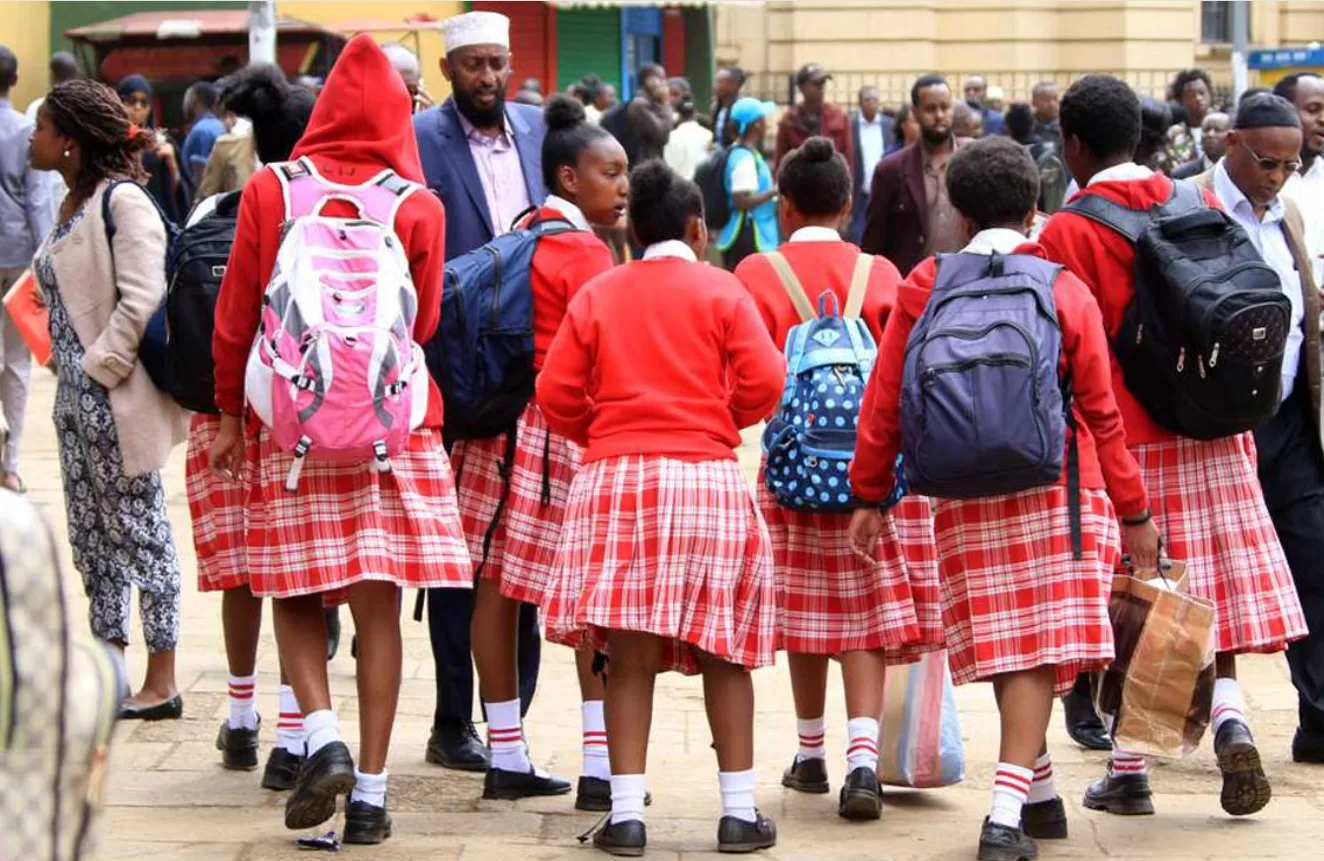No Form One Admissions in 2025 as CBC Transition Alters School Calendar and Funding Structures.
When learners return to school on Monday, January 6, the academic term will introduce significant changes for parents, schools, and businesses tied to the education sector.
This marks a new phase in Kenya’s transition to the competency-based curriculum (CBC), with notable shifts in school operations and funding structures.
No Form One Admissions in January 2025
For the first time since 1985, January will see no Form One admissions due to the phasing out of the 8-4-4 education system in primary schools.
The last Standard 8 class completed their primary education in 2023, and no Kenya Certificate of Primary Education (KCPE) examinations were conducted in 2024.
This mirrors the transition in 1985, when primary education expanded from seven to eight years.
Instead, the pioneer CBC cohort will proceed to Grade 9, the final stage of junior secondary school, which is hosted in primary schools.
Join Teachers Updates on Facebook
This shift has broad financial implications for secondary schools, which will lose billions in capitation funds from the Free Day Secondary Education (FDSE) programme.
Each learner previously brought Sh22,244 annually in tuition allocations, a significant source of income now reduced with one fewer class.
Primary Schools Manage Larger Budgets
Conversely, primary school headteachers now oversee increased budgets to cater to both primary and junior secondary learners.
Funding allocations stand at Sh14,420 annually for primary learners and Sh15,042 for those in junior secondary.
This development has led to congestion in primary schools due to increased enrolments, reversing the overcrowding previously seen in secondary schools.
Reduced Economic Activity Around Schools
The absence of Form One admissions has dampened back-to-school activities. A Nation survey highlighted reduced demand for school supplies such as uniforms, books, and metal boxes.
Artisans like Kisumu trader Richard Omollo, who previously specialized in school metal trunks, have diversified into producing other items like cooking stoves due to the decline in business.
Similarly, bookstores and publishers face financial losses as unsold Form One textbooks become dead stock.
Financial Strains for Secondary Schools
The Kenya Secondary Schools Heads Association (Kessha) has raised concerns over financial shortfalls in secondary schools.
The Kessha national chairperson, Willy Kuria, noted that despite reduced enrolment, operational costs remain constant.
Schools still face expenses for utilities, staff salaries, and other essentials. With no Form One admissions, empty classrooms add to the burden, highlighting the underutilized infrastructure built for CBC.
Kessha has called on the government to release Sh64 billion in withheld capitation funds accrued over the years to alleviate the financial strain.
Kuria emphasized that schools are already in debt, with some owing up to Sh70 million, and suppliers are likely to demand payment once schools reopen.
He urged parents to help bridge the financial gaps, even as he reiterated the need for State intervention.
Calls for Infrastructure Reallocation
Secondary school stakeholders, including Kessha and the Kenya Union of Post-Primary Education Teachers (Kuppet), previously petitioned the government to allocate junior school learners to secondary schools, citing the availability of classrooms, laboratories, and teachers.
Kuppet Assistant Secretary General Moses Nthurima argued that empty secondary school classrooms could accommodate Grade 9 learners, easing congestion in primary schools.
Managing Increased Primary School Budgets
The Head of Public Service, Felix Koskei, cautioned primary school headteachers to exercise prudence in managing their expanded budgets.
He urged vigilance to prevent misuse of funds. Similarly, Kenya Primary School Heads Association (Kepsha) chair Johnson Nzioka appealed to the government for the timely release of funds to ensure smooth operations.
Fuad Ali, Kepsha’s vice chair, expressed optimism about the Grade 9 transition, citing improved readiness compared to earlier CBC rollouts.
Read Also: TSC Reshuffles Field Directors to Kick Off the New Year
He noted that classrooms were nearing completion, books had been supplied, and teachers had been posted, with his own school receiving seven additional teachers.
National Parents Association chairperson Silas Obuhatsa called on private schools to invest in infrastructure for junior secondary learners, emphasizing their role in supporting the transition. Despite the challenges, stakeholders remain hopeful for smoother operations in the CBC era.
No Form One Admissions in 2025 as CBC Transition Alters School Calendar and Funding Structures.
Follow Teachers Updates on Facebook, LinkedIn, X (Twitter), WhatsApp, Telegram, and Instagram. Get in touch with our editors at [email protected].


Discussion about this post